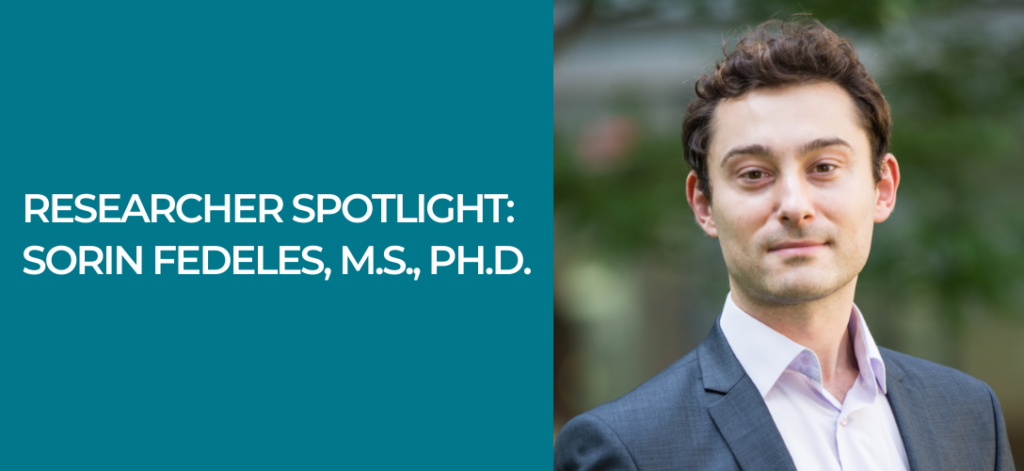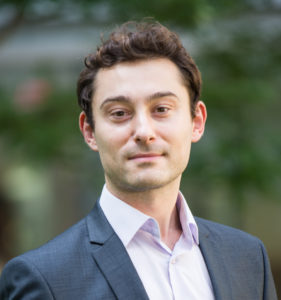
Published January 12, 2021
Sorin Fedeles, M.S., Ph.D., Yale University

How did you first get involved in PKD research?
Sorin: When I first came to Yale, my main goal was to undertake biomedical research studies rooted in asking the right questions and pursuing the most relevant experiments to uncover novel paradigms for indications of large unmet need. While I had no personal connection to PKD, I did have family members impacted by kidney disease and was aware of the paucity of effective therapeutics in nephrology.
During my initial conversations with my Ph.D. mentor, Steve Somlo, I learned of the significant knowledge gaps in the understanding of PKD and the critical need for targeted efficacious drugs. Through my Ph.D., postdoctoral, and faculty studies I focused on deciphering the molecular and genetic mechanisms of ADPKD and ADPLD in order to derive knowledge that informs translational decisions that may ultimately lead to the development of future therapeutics.
What are you working on currently?
Sorin: My current projects are focused on exploring the role of protein folding (through the activation of one of the main pro-chaperone effectors of the ER stress response) in modifying cystic disease progression due to polycysin-1 missense mutations and identifying genetic and chemical modulators that control the viability of mutant cystic cells without impacting the survival of normal cells.
Our strategy in targeting ADPKD is different from other approaches that focus on anti-proliferation/secretion mechanisms. While those processes are linked to the progression of the disease, they take place over a long period of time and would thus require continuous decade(s)-long therapy. Establishing an avenue to remove PKD mutant cells safely without impacting the viability of normal cells is in line with what would be expected of systemic therapy and would be critical to the success of this approach.
Furthermore, this route to targeting PKD has the potential to be complementary to future therapies that target proliferation, and it may lead to multi-drug strategies that can be used to limit dosing requirements for any single drug, thereby keeping the drugs well within their therapeutic indices.
What would you like the patient community to know about your research?
Sorin: I’m grateful to have the opportunity to work on translational projects specifically designed to generate potential therapeutic leads for ADPKD. Throughout this time, the PKD Foundation has been instrumental in supporting this research with multiple research grants including the Young Investigator Award this past year. Innovative approaches to studying ADPKD and identifying tractable targets are desperately needed in order to fill the gap between academic research and clinical drug development.
I strongly believe that given the combination of advances in genome sciences, AI-enabled drug screening, and pre-clinical model development, the PKD therapeutic landscape as a whole is nearing an inflection point—that is, a stage where novel disease biomarkers in tandem with personalized pharmacogenomic approaches can inform clinical decisions for the next generation of PKD treatments.
What excites you most about this research?
Sorin: As a biomedical researcher, what drives me to excel in my work is the strong belief that our studies may positively impact the outcomes for ADPKD patients. At the end of the day, this is what our duty is as scientists and members of this community.
What are some of your personal interests outside of research?
Sorin: Outside of research, I love spending time with my wife and daughter exploring the biking trails in Connecticut or playing tennis.
Check out Dr. Fedeles’s grant and others funded by the PKDF here!
The PKD Foundation is the largest private funder of PKD research in the U.S. Since 1982, we’ve invested over $50 million in more than 1,300 research, clinical and scientific grants, fellowships, and scientific meetings. Each year, the Foundation identifies and supports the work of scientists and researchers from around the world who look for ways to treat and eventually cure PKD. Our vision is to #endPKD. Donations fund necessary research that leads to more effective treatments and ultimately a cure for PKD.









Thank you for your work on this disease which has affected many generations of my family.
Thank you for your dedication and passion toward PKD research!